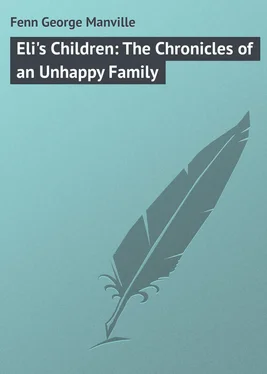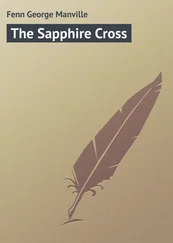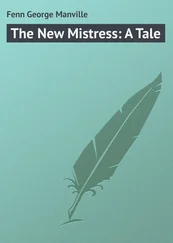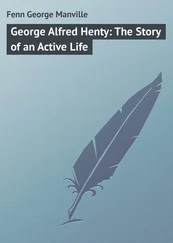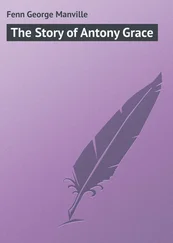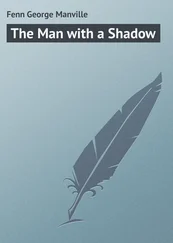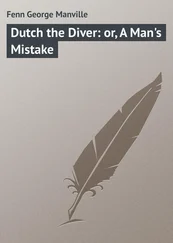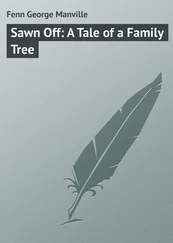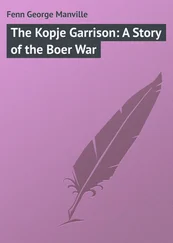George Fenn - Eli's Children - The Chronicles of an Unhappy Family
Здесь есть возможность читать онлайн «George Fenn - Eli's Children - The Chronicles of an Unhappy Family» — ознакомительный отрывок электронной книги совершенно бесплатно, а после прочтения отрывка купить полную версию. В некоторых случаях можно слушать аудио, скачать через торрент в формате fb2 и присутствует краткое содержание. Издательство: Иностранный паблик, Жанр: foreign_prose, на английском языке. Описание произведения, (предисловие) а так же отзывы посетителей доступны на портале библиотеки ЛибКат.
- Название:Eli's Children: The Chronicles of an Unhappy Family
- Автор:
- Издательство:Иностранный паблик
- Жанр:
- Год:неизвестен
- ISBN:нет данных
- Рейтинг книги:5 / 5. Голосов: 1
-
Избранное:Добавить в избранное
- Отзывы:
-
Ваша оценка:
- 100
- 1
- 2
- 3
- 4
- 5
Eli's Children: The Chronicles of an Unhappy Family: краткое содержание, описание и аннотация
Предлагаем к чтению аннотацию, описание, краткое содержание или предисловие (зависит от того, что написал сам автор книги «Eli's Children: The Chronicles of an Unhappy Family»). Если вы не нашли необходимую информацию о книге — напишите в комментариях, мы постараемся отыскать её.
Eli's Children: The Chronicles of an Unhappy Family — читать онлайн ознакомительный отрывок
Ниже представлен текст книги, разбитый по страницам. Система сохранения места последней прочитанной страницы, позволяет с удобством читать онлайн бесплатно книгу «Eli's Children: The Chronicles of an Unhappy Family», без необходимости каждый раз заново искать на чём Вы остановились. Поставьте закладку, и сможете в любой момент перейти на страницу, на которой закончили чтение.
Интервал:
Закладка:
“I’m very sorry, Morrison – very,” said the doctor, “for I respect you greatly, and it must be a great grief to your poor little wife; but I have seen him myself, as I did about Warner’s child, and he is very much cut up about it; but as to moving him, he is like iron.”
“I can’t quite understand it, sir,” said Tom, flushing. “Do you mean to say, sir, that parson won’t bury the child?”
“Well, it is like this, Morrison,” said the doctor, quietly, “he is a rigid disciplinarian – a man of High Church views, and he says it is impossible for him to read the Burial Service over a child that was not a Christian.”
“That was not a Christian?” said Tom slowly.
“He says he condoles with you, and is very sorry; that the poor little thing can be buried in the unconsecrated part of the churchyard; but he can grant no more.”
“Doctor,” cried the wheelwright, fiercely, “I don’t be – There, sir, I beg your pardon,” he continued, holding out his rough hand; “but it seems too hard to believe that any one could speak like this. The poor little thing couldn’t help it, sir; and we should have had it done next Sunday. Why, sir, the poor girl was only showing me the little – don’t take notice o’ me, sir, please; I’m like a great girl now.”
As he spoke, he sank down upon an upturned box, and, covering his face with his hands, remained silent; but with his heaving shoulders telling the story of his bitter emotion.
“Be a man, Morrison – be a man,” said the doctor, kindly, as he laid his hand upon the stricken fellow’s shoulder.
“Yes, doctor,” he said, rising and dashing away the signs of his grief – “this is very childish, sir; but it’s a bit upset me, and now this news you bring me seems to make it worse. I’ll go up and see parson. He won’t refuse when he knows all.”
“Yes, go up and see him,” said the doctor, kindly. “Can I do anything for you?”
“No, sir, thanky,” said the wheelwright, meekly; “you couldn’t do what I wanted, sir – save that poor little thing’s life. There’s nothing more.”
“No,” said the doctor; “our profession is powerless in such a case. The child was so young and tender that – ”
“Don’t say any more, sir, please,” said Morrison, with his lip quivering. And then he turned away from the house, so as to avoid Biggins the carpenter, who had just come in at the garden gate, and walked on tiptoe along the gravel walk, up to the door, where he was met by a neighbour, who led him up-stairs.
Biggins, the Lawford carpenter, was the newly-appointed sexton of the church, and between him and Tom Morrison there was supposed to exist a bitter hatred, because Biggins the carpenter had once undertaken to make a wheelbarrow for the rectory garden, and Morrison had made a coffin for one of the Searby children who died of a fit of measles.
The feud seemed to be a bitter one, for when he came out of the cottage five minutes later, he turned down the garden, seeing which, the doctor shook hands with Morrison, and at parting said —
“Let me give you something to do you good, Tom.”
“What, sir, doctor’s stuff?” said the wheelwright, with a look of wonder. “I want no physic.”
“Yes, you do,” said the doctor, smiling, as he laid the silver knob of his stick on the stout fellow’s breast – “yes, you do. I can minister to a mind diseased as well as to a body. Look here, my lad, you must bear your suffering like a man; so, now go and do this – ”
Tom made an impatient movement to go, but the doctor stayed him.
“There is nothing like work at such a time as this,” he said. “Go and see the parson, and then set to and work harder than ever you worked before in your life. It will give you ease.”
“You’re right, Mr Vinnicombe, you’re right,” said Tom, bluntly. “Thanky, sir – thanky. Good-bye.”
As the doctor walked out of the gate, Biggins the carpenter, a hard-faced man, who emitted a strong odour of glue from his garments, walked up, tucking a piece of sandpaper upon which he had been writing, and his square carpenter’s pencil, that he had pointed with four chops of his chisel before starting, into one of his pockets.
“Thy savoy cabbages look well, neighbour,” he said quietly, as being the most sympathetic thing he could think of at the moment. Then he held out his hand, shook the other’s warmly, without a word, and then stood by him, breathing heavily, and looking down at the ground.
Five minutes passed like this, without a word on either side, Morrison manifesting no impatience, and Biggins showing no disposition to go; for it was his way of showing sympathy to a friend in distress, and Morrison felt it so to be, and thanked him in his heart.
At last the carpenter, who was used to funerals, and who was now next door to being clerk, heaved a heavy sigh, stooped down, picked a strand from the grass plot, and held it at arm’s length, looking at it fixedly for a minute or so, before saying, huskily —
“All flesh is grass, Tom Morrison – flowers of the field – cut down – withered. Amen.”
He said it in a slow, measured way, and with a nasal twang, the last word closing his disconnected speech after quite an interval; and then the two men stood together for some minutes in silence.
At last Biggins spoke again, but without raising his eyes, looking down at the garden path, as if for a place to plant the bent he had broken from its roots.
“Poor wife! She’s terribly cut up, Tom.”
There was another interval of silence, and then Biggins said, as if to himself, and still gazing at the path —
“White cloth, and silver breastplate and nails?”
There was another pause, and then Tom said in a weary, dull way —
“As if it was one of your own, my lad – as if it was one of your own.”
“Good-bye, Tom Morrison – good-bye, lad,” said Biggins, holding out his hand once more, but with his back half turned to his neighbour “Good-bye,” said Tom, squeezing the honest, hard fist held out to him in a manly grip; and, with a sigh, Biggins was turning off, when a word from the wheelwright arrested him. “Come down here, lad, away from the house,” said Tom, huskily.
Biggins looked up now, his heavy face lighting up. Tom Morrison wanted him to do something for him. He could do that, if he could not show sympathy.
They walked down the neatly-kept garden, till they stood under the willow tree, where, after a few minutes’ silence, Tom Morrison said huskily —
“They’ve made you saxon now, haven’t they, Joe?”
“Yes, and ought to be clerk as well, but it don’t seem like being saxon in these newfangled days, when the ground’s cut from under a man, and there’s no chance of putting in a simple, honest amen anywhere. Ah, I don’t know what poor, dear old parson would have said to see the change. He’d think we’d all gone over to Popery.”
Tom waited till his friend, now suddenly grown voluble, had ceased.
“Joe Biggins,” he said, “didst ever know old parson – God bless him! – to refuse to bury any one out of the place because – because they wasn’t baptised?”
“Never,” said Biggins – “never,” energetically.
“He never had such a case, p’raps,” said Tom.
“Oh, but he did,” said Biggins – “even in my time. Why, there was poor Lizzy Baker’s child. You knew Sam Baker?”
Tom nodded.
“Well, when their little one died it hadn’t been christened, I know. I remember father talking about it while he made the coffin, and I recollect it so well because it was the first coffin I ever put the nails in all by myself. Let’s see, that’s a good fifteen year ago now, Tom, that it be.”
“And he buried it?”
Читать дальшеИнтервал:
Закладка:
Похожие книги на «Eli's Children: The Chronicles of an Unhappy Family»
Представляем Вашему вниманию похожие книги на «Eli's Children: The Chronicles of an Unhappy Family» списком для выбора. Мы отобрали схожую по названию и смыслу литературу в надежде предоставить читателям больше вариантов отыскать новые, интересные, ещё непрочитанные произведения.
Обсуждение, отзывы о книге «Eli's Children: The Chronicles of an Unhappy Family» и просто собственные мнения читателей. Оставьте ваши комментарии, напишите, что Вы думаете о произведении, его смысле или главных героях. Укажите что конкретно понравилось, а что нет, и почему Вы так считаете.
